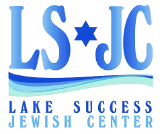
Triennial Reading Cycle 3
For Year 5785
Parshat Vayishlach
Genesis 35:16-36:43
December 14, 2024
Our Vayishlach story begins with lots of action. After learning that Esau is approaching with a small army, Jacob divides his camp into two (hoping half will survive), wrestles all night with an “angel” who changes Jacob’s name to Israel, meets his brother and returns with his family to Canaan. Eventually Jacob’s daughter Dinah is assaulted and her brothers carry out a violent, vigilante rescue: Killing off the tribe whose prince is responsible for the attack. All in one portion…
In our triennial segment today:
Rachel dies giving birth to Benjamin. Jacob buries her in Bethlehem, also known as Ephrat. The geography is important since Bethlehem (now a community in the West Bank) was a central community for Jews as well as (later on) for Christians and Muslims.
Following the 1967 war, a new Jewish community of Efrat was established in an area between Bethlehem and Hebron. Because of its strong biblical roots, many believe that Israel has an eternal right to that land. Others argue that for peace to be achieved, the territory known as the West Bank needs to become part of a Palestinian state.
Whatever our political and religious opinion, it is important to recognize how the Bethlehem to Hebron corridor was central to Jewish, Biblical history. If a peace plan ever succeeds, hopefully these historical communities will be open to all religions and faiths in the spirit of peace.
We should note that Rachel’s two children were Joseph and Benjamin. They were the youngest of Jacob’s sons. Joseph becomes Jacob’s favorite; Benjamin, the youngest child, is the son whom Jacob later protects to the point of excess. As a young man, Jacob suffered the consequences of cheating his older brother Esau out of birthright and blessing; when he becomes a father, Jacob maintains the practice of favoring the younger over the older. We might argue that Jacob has not learned from his earlier mistakes. Others argue that Jacob, from his own experience, appreciated how seniority alone should never convey status.
Isaac dies and is buried by Esau and Jacob. There is no further commentary offered; all we can imagine is what Esau and Jacob said to each other while arranging the burial of their father. Did they seek closure to the animosity which so dominated their lives? Did they pledge to renew and strengthen their relationship? The Torah leaves us to fill in the gaps and to use our imagination.
The Torah records Esau’s genealogy: Recording the history of each clan highlights the important role of every individual in the history of both the world and the Jewish community. Today, tracing our genealogy enables us to better preserve the history of our families.
Haftorah Reading: Ovadiah 1:1-21
The entire Book of Ovadiah is one chapter-and that chapter constitutes our Haftorah. Ovadiah actually addresses the egregious behavior of Edom, the nation which descends from Esau and becomes the Roman Empire. In reading the Torah’s account of Esau and Jacob, we learn how the brothers reconciled after a lengthy period of animosity. Ovadiah lives at the time when the Kingdom of Judea, the children of Jacob, is now exiled from its Israel homeland. Edom is largely responsible for participating in the downfall and exile of Judah. The Edom of Ovadiah’s time is an immoral nation, deceitful and arrogant. The prophet warns the people of Edom that they will bear the consequences. It is interesting to note how the Bible does not just focus on Israel; the character of the world is also a source of concern.

